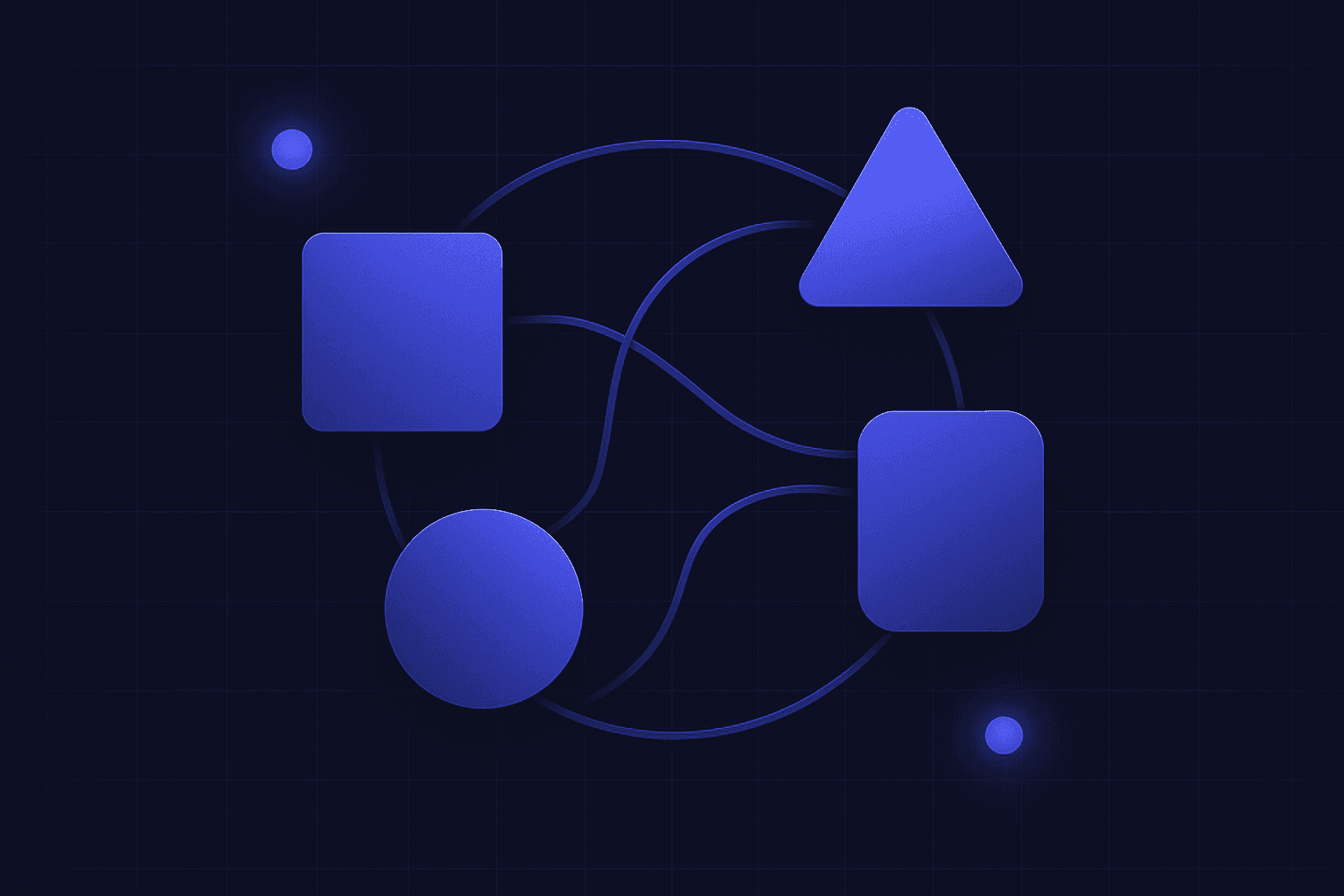Thanks to the ever-evolving world of proxy servers, web scraping is easier than ever.
Web scraping has endless functions, from scraping store data to product reviews or site data for SEO. However you intend to employ web scraping, one thing’s for sure – you’ll need the right proxy server for the job.
A proxy server separates you from the internet, typically by changing your IP address. Instead of sending a website request directly from your IP, a proxy server will act as a middleman, changing your ‘location’ and even encrypting your data and, in some cases, block access to certain webpages.

A provider may be ideal for one job, but not for another. Making the right choice largely depends on your goals, your budget and your required level of security. Creating a safe web browsing environment for a child will require a very different solution to an SEO analyst, for example.
In this guide, we’ll explore and compare the market’s leading residential, backconnect and rotating proxies for web scraping.
Scraper API

Scraper API is a proxy API service specifically designed to make web scraping easier. The proxy API handles everything – from the provision of proxies to the browsers and captchas. Meaning you can get the data you need with just a simple API call.
A tool like Scraper API is ideal if web scraping is your specific proxy goal. It’s fast and largely automated with proxy servers in over 50 countries.
What makes Scraper API unique is the smart routing logic that directs requests through different subnets, proactively tackling the threat of IP bans and CAPTCHAs. It’s also one of the only services to provide free rotating proxies within its pricing plan.
With a reasonable tiered pricing structure, Scraper API is affordable and scalable with the potential for unlimited concurrent requests and API calls with their bespoke packages.
Smartproxy

If you’re looking for a good proxy provider, check out Smartproxy.
Their raw proxy solution has more than 40 million rotating residential proxies, along with location targeting, rotating sessions and an automatic proxy rotate.
Pricing
While Smartproxy’s pricing structure is based on bandwidth, has 24/7 customer service team and promises a 5-minute response time where they can advise you on whether to upgrade to the next plan or continue as a pay-as-you-go customer.
Smartproxy covers over 195 locations and offers new features such as X Browser, Search Engine Proxies and Chrome Proxy Extension.
BrightData

Renowned for an extensive network of over 40 million rotating residential IPs, BrightData is one of the OG proxy servers. It has stood the test of time thanks to an ever-growing feature list, including preset configurations, chrome extension, random header generator and built-in CAPTCHA solving.
Pricing:
BrightData is certainly not the cheapest rotating proxy server on the internet, with bandwidth pricing starting at $0.6 per datacenter proxy, it’s certainly one of the more premium options for enterprise customers in search of a reliable and well-established industry tool.
Zyte

As one of the most well-established web scraping IP rotation services, Zyte avoids IP bans by routing requests through other IPs. Zyte is specifically designed for web scraping and provides a full suite of innovative features, including a scriptable web browser, open-source web scraping framework and more.
With Zyte, you only pay for successful requests, making this a great cost-effective solution. However, Zyte doesn’t currently offer Google proxies, ticket proxies and there are definitely better Amazon proxies on the market.
If you’re looking for a guided approach and want to access vast data without the harvesting, Zyte is a great choice.
Pricing:
The basic membership starts at $99/month for 200k requests with plans increasing to 2.5m and even custom on Zyte’s Enterprise plan.
Oxylabs

Pricing:
Oxylabs’ residential proxies start from $5/GB with specialist real-time crawlers for scraping search engines and eCommerce websites from $0.3/1k pages.
With the higher price tag comes a bespoke service, meaning new customers will have to fill out a form and submit an enquiry detailing your proxy requirements, rather than via simple self-service signup. The benefits of choosing Oxylabs include topnotch scraping tech, a real-time proxy crawl service and rotating proxy API.
Shifter

Home to one of the world’s largest pools of affordable residential proxies, Shifter has no limits on bandwidth and allows rotating proxies every five minutes. Ideal if you are in search of a service that provides both rotating and dedicated proxy providers without bandwidth limits.
Pricing:
Rather than bandwidth, Shifter’s price plans are based on a per proxy basis – starting at $30 a month. Depending on your requirements, this could soon rack up and result in a significant cost. But that’s not to say Shifter doesn’t pack a punch, particularly for those looking to spread requests over a series of residential proxies, regardless of bandwidth.
Blazing Proxies

If speed is your top priority then check out Blazing Proxies. With access to only 8,000 proxies at any given time, Blazing Proxies’ pool is small but perfectly formed.
A smart choice if you’re looking for an affordable option to scrape fairly accessible sites – this won’t infiltrate Fort Knox, but it will deliver a seamless self-service solution with the full suite of shared, dedicated and rotating proxies.
Pricing:
Blazing Proxies’ online calculator helps to determine the package to suit your requirement, dedicated proxies start from $1.20 and rotating start from $2.20.
Geosurf

Another specialist residential proxy provider, Geosurf is likely one of the best proxy services for finding US residential IPs not covered by other services.
As a premium tool, Geosurf provides a variety of highly specialised pools, including Craigslist & Instagram proxy servers. You’ll also tap into limited-edition sneakers thanks to Geosurf’s Sneaker Proxy, which promises to never get you blocked.
Pricing:
Unlike Microleaves. Geosurf charges based on bandwidth basis. With plans starting at $450 per month, this is certainly not the cheapest option, but likely your best choice if you are wanting to tap into their specialist services.
NetNut

As one of the fastest residential proxy providers in the market, NetNut boasts some sweet features including an API designed to deliver “near real time” stats, so you won’t need to login to the dashboard every time you want to access data.
NetNut taps into DiViNetwork’s hundreds of ISPs globally, elevating it above other residential proxy provider services that typically get their IP addresses from P2P solutions of VPN users.
Pricing:
NetNut has proxies in the US, UK, Canada, France, India, Germany and more. With rates ranging between $3.0 and $15 per GB, it’s an affordable choice if you are looking for reliable residential proxy provider services.
Intoli

One of the smaller companies on our list, Intoli’s tech capability is huge. This startup delivers a smart proxy service with access to a large pool of residential proxies, including rotating proxies on every request.
Intoli retired every failed request, using smart algorithms to navigate the ever-changing infrastructures. As a market-leading startup, Intoli takes an agile approach to development and, as a result, it’s a premium solution.
Pricing:
The more data you need, the cheaper Intoli gets. The Business Plan charges $150 per GB, billed monthly. It’s not a simple self-service tool, rather Intoli acts as an augmentation of your existing team – hence the price tag.
Proxy Frequently Asked Questions
What are residential proxies?
Residential proxies are IP addresses provided to internet users by Internet Service Providers (ISPs). They are legitimate IPs relating to a physical location, such as your home or office.
When you move to a new location or access the internet from a different place, your ISP will give you an IP address. Typically, web scrapers will use residential proxies to access a wide variety of sites as they are seen as the most legitimate users due to their association with a physical location.
What is proxy scraping?
Proxy scraping is when you use a proxy to pull data from websites anonymously. Typically on a large scale, proxy scraping is used for a wide variety of activity, including pulling site data, social media analytics, product reviews and so much more.
Web scrapers use rotating proxies to avoid getting blocked, so they can continue to pull large amounts of data for whatever function they need. However, many services now block users who harness rotating proxies, such as Instagram, where logging in from several IPs in quick succession can lead to banning.
How do I set up residential proxies?
To set up your own residential proxies, you will need to create a virtual private server (VPS), then you’ll need to buy several IPs. On the VPS, you will need to install proxy software that can generate proxy ip addresses from your previously rented IP addresses. This allows you to create proxies that are completely unique to you, and as such they’ll often tend to be the best proxies you can get.

